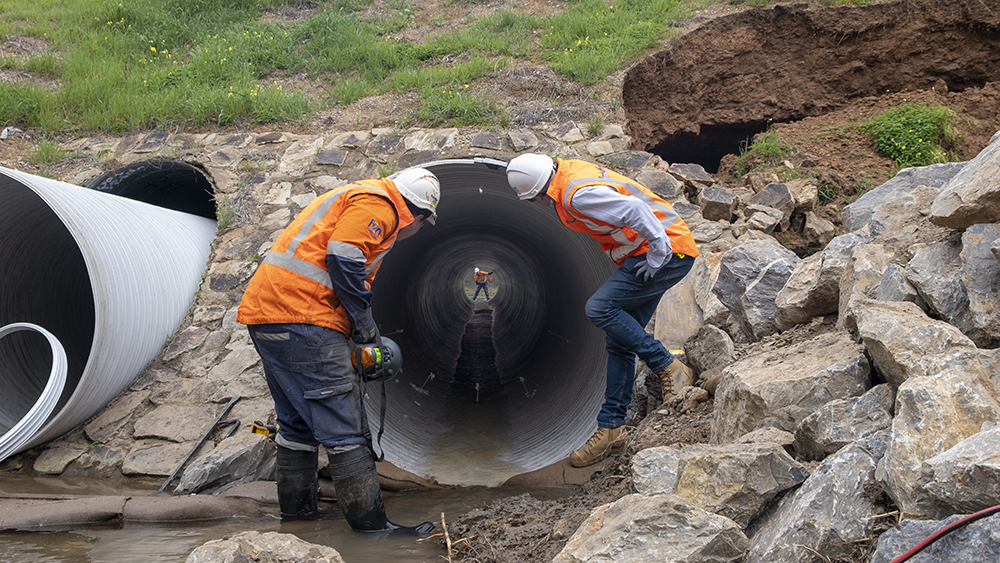Mostly unseen, culverts allow waterways to flow while supporting roads and rail networks. Many culverts are now ripe for attention, highlighting the essential role they play in our Regional and Metro infrastructure.
Typically, once culverts are installed, they don’t receive a great deal of attention.
That has been for various reasons says Stephen McGowan, Business Development Manager at Interflow, one being that it was assumed these assets would have a 100-year service life. That assumption is proving wildly incorrect in most cases.
As a result of such factors as increased traffic loads, more frequent major weather events, and assumptions around materials and coatings, many culverts are showing signs of failure in less than half that time. Some materials in place, such as zinc coated corrugated metal pipes, are deteriorating much earlier that assumed.
For many culvert asset owners in local council, rail and arterial roads that’s right about now.

Data from independent research can be used by infrastructure managers to re-assess the performance life of their culverts, ensuring maintenance and renewal work is carried out before major failures impact various stakeholders.
Interflow culvert experts regularly discuss such insights with infrastructure managers and can devise trenchless solutions for culverts that are reaching or have gone beyond their end of functional life.
An excellent example of this was a recent project in Victoria involving a three-cell RCP culvert system. They were a significant size and channelled water under a major high-traffic arterial road.
The design of the original solution involved diverting traffic and digging up the road to lay new pipes. Interflow instead recommended a trenchless fix, removing any need for detours and delays for road users.
“We delivered the project in 12 days and didn’t have to dig up the busy road. It was a completely trenchless solution for a great outcome, with no disruption to the traffic above.”
“This was an excellent example of doing something innovative in the culvert space to solve customer problems and to minimise disruption for stakeholders.”
For more information, contact Stephen McGowan at smcgowan@interflow.com.au


